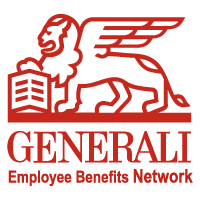Senior management: time to stop paying lip service to wellbeing

This represents one of the key findings of a new piece of industry research entitled Wellbeing in the Workplace by Reward magazine, in partnership with Generali and various employee wellbeing specialists.
The disconnect is demonstrated by the two biggest barriers to building a wellbeing strategy, namely senior management commitment in nearly a third (31%) of cases and demonstrating return on investment (ROI) in pole position at 57%.
Interestingly though, the majority of respondents (38%) state that they don’t even try to measure ROI with regards to group income protection (IP) or wellbeing products. Of those that do use some kind of metric, most rely on the number of sickness days per employee (in 25% of cases) and employee feedback (again in 25% of cases)
Wellbeing to feature in Annual Reports & Accounts?
Considering there are moves afoot to encourage UK companies to benchmark employee health and wellbeing in annual reporting, businesses might be well advised to get the ROI sticking point sorted.
The Chartered Institute of Personnel & Development (CIPD) called on the government last year to establish human capital management (HCM) reporting standards for FTSE 350 organisations. Such standards, embedded into annual reporting, would measure, report and benchmark the health and wellbeing of employees. It also called on employers to shift from one-off wellbeing initiatives to a proactive employee wellbeing programme.
Support to achieve ROI
Fortunately, ROI can be achieved by simply working in partnership with group IP insurers.
- Income replacement and wellbeing services are more accessible than most perceive
For around 0.25% of payroll employees can be covered by group IP, plus they and their families will have access to a huge range of added-value wellbeing services. Even if the entire workforce is not covered, it’s often possible to roll out added value benefits to all employees. This can open up strategic absence management and wellbeing opportunities to many small to medium sized enterprises – such as the growing International Middle Market.
- Early notification of absences is key
Costs can be further contained by notifying the insurer of absence, even with a simple phone call, at a very early stage. There can be distinct benefits when this happens within the first few weeks or even days of absence where employers can reap the full benefit of tailoring added value services to need – namely getting the individual back on their feet and reducing the likelihood of a group IP claim.
- Improve understanding and awareness
In order to ensure tangible ROI, it’s also essential to rollout an ongoing employee communications programme to help ensure engagement and benefit usage. Some providers now offer communications help and expertise, such as self-serve portals that allow HR to produce various types of employer-branded communications material. Added to this may be healthy lifestyle focused support material such as newsletters and online tutorials and health screeners.
Pre-empt the storm!
Considering the Government’s ongoing clawback of state benefit support for individuals, plus the recent lean towards employers to help reduce the state disability bill – as per the October 2016 Green Paper Improving Lives, Work, Health and Disability – it doesn’t seem too far-fetched a possibility for the government to meet the CIPD’s calls for HCM reporting standards.
The financial and reputational benefits of getting ahead of the game could be considerable.
Simon Thomas is director of UK Employee Benefits, Generali
This article was provided by Generali Employee Benefits.
In partnership with Generali Employee Benefits Network
Generali Employee Benefits' solutions are to protect and enhance the wellbeing of their workforce.







